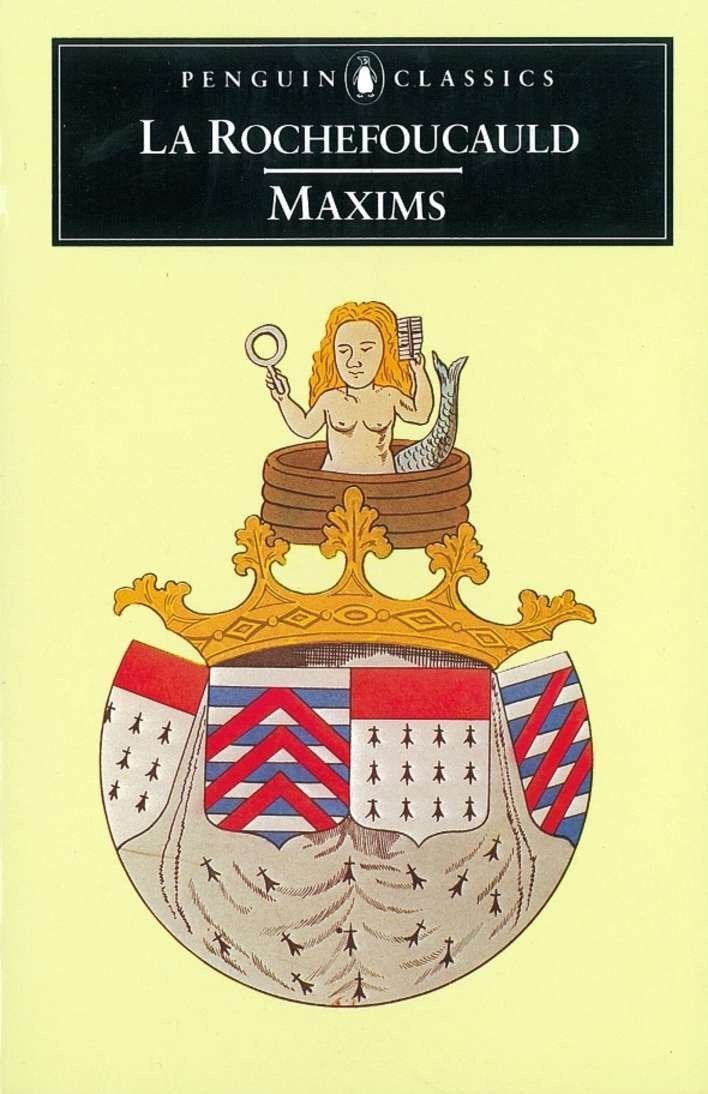Book of a lifetime: Maxims by La Rochefoucauld
From The Independent archive: Alain de Botton on ‘Maxims’ by La Rochefoucauld

There’s a widespread view that when someone is sad, what they most need is cheerfulness. But in truth, what they need is a dose of pessimism so powerful that their own problems will come to seem minor in comparison.
It is for such relief that we should turn to one of the darkest, most cynical books ever written – a slim volume from 17th-century France that Voltaire remarked was the book that had most powerfully shaped the character of the French people, giving them a taste for psychological reflection, darkness and precision: La Rochefoucauld’s Maxims.
Behind almost every one of these maxims, or aphorisms, there lies a challenge to an ordinary, flattering view of ourselves. La Rochefoucauld repeatedly reveals the debt that nice behaviour owes to its evil shadow. He shows that we are never far from being vain, arrogant, selfish and petty – and never nearer to those traits than when we trust in our own goodness.
For example, we might believe that we’re kind to be concerned about the worries of our friends. Nothing of the sort, mocks La Rochefoucauld, writing a century before the Germans even thought up the notion of Schadenfreude: “We all have strength enough to bear the misfortunes of others.” The real challenge, he might have added, is to find enough strength to endure others when they have the temerity not to have too many misfortunes: in other words, to succeed.
What La Rochefoucauld hates above all is sentimentality, and because there are few more sentimental periods than our own, the maxim of his that is most quoted today concerns romantic love: “There are some people who would never have fallen in love if they had never heard that there was such a thing.”
La Rochefoucauld is modern in another way: he recognises the importance of writing his truths in a manner that will help them to stick in the mind, in beautifully balanced phrases. If most philosophers feel no need to write like this, it is because they trust that, so long as an argument is logical, the style in which it is presented to the reader will not determine its effectiveness.

La Rochefoucauld believed in a different picture of the mind. Arguments are like eels: however logical, they may slip from the mind’s weak grasp unless fixed by beautiful sentences. La Rochefoucauld is therefore an inspiration to anyone who feels divided between the role of a philosopher and a writer: he suggests that you can have the best of both worlds, and indeed went on to inspire some of the greatest of philosophers. It isn’t accidental that he turns out to have been dearly loved by, among others, Kierkegaard, Leopardi, Nietzsche, Wittgenstein and Cioran.
La Rochefoucauld reminds us that great pessimism doesn’t have to be depressing: to read him is like sucking the juice from the bitterest lime, and enjoying it.

Join our commenting forum
Join thought-provoking conversations, follow other Independent readers and see their replies
Comments